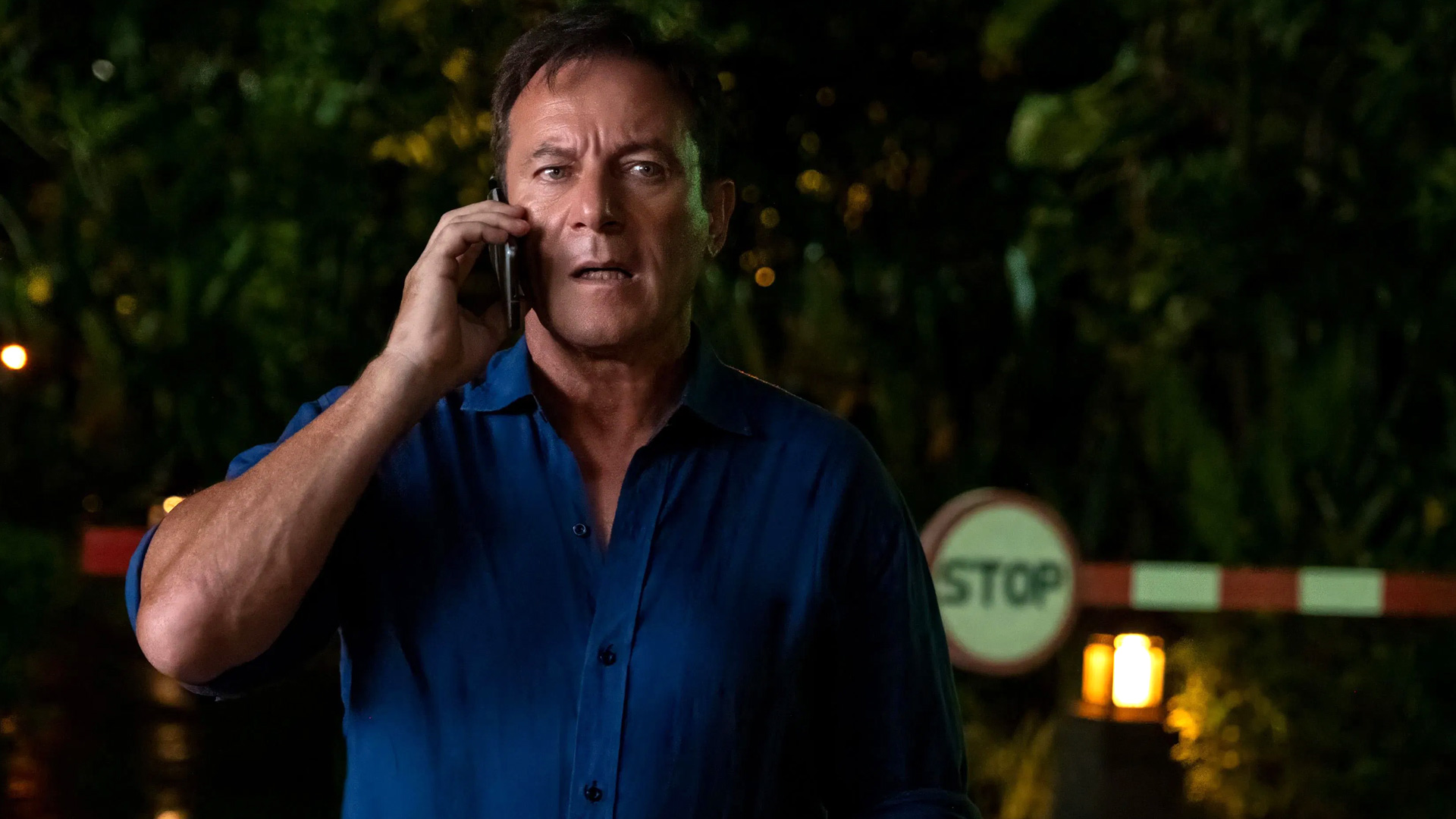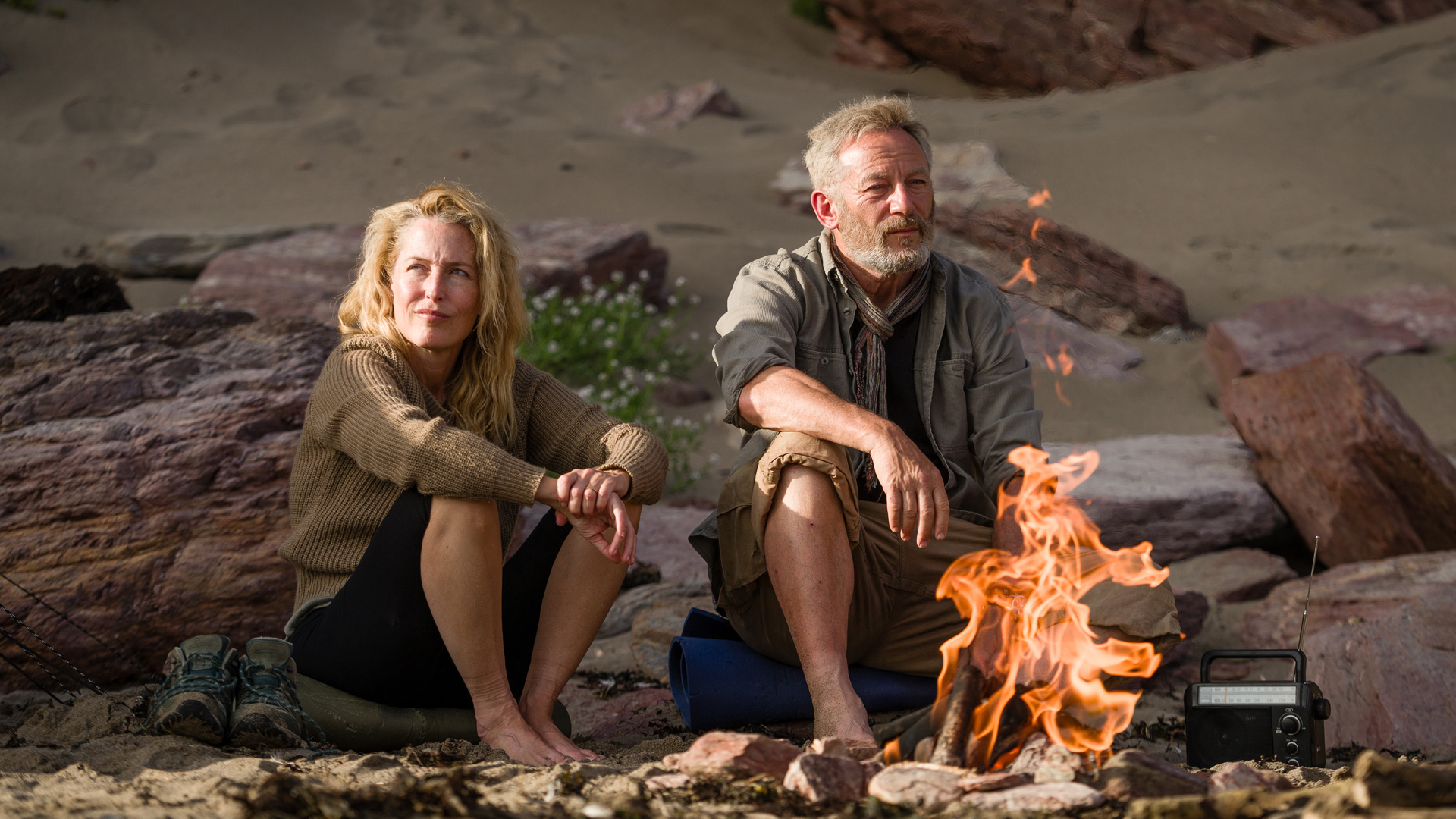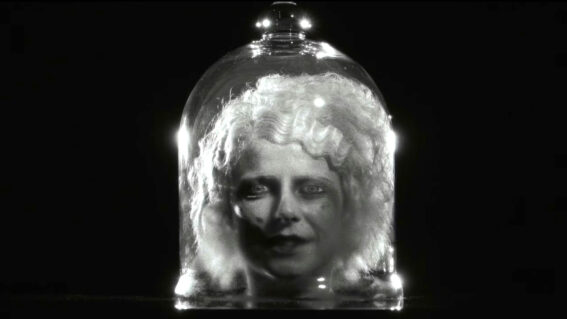Jason Isaacs makes an incredible trek from The White Lotus to The Salt Path
These two seemingly similar roles are taken in vastly different directions thanks to the greatness of Issacs.

Fresh off The White Lotus: Season 3, Jason Isaacs takes the lead alongside Gillian Anderson in The Salt Path. As Liam Maguren writes, the two seemingly similar roles are taken in vastly different directions thanks to the greatness of Isaacs.
Jason Isaacs has had a long and storied career. On the big screen, millennials will know him as being one of those Malfoy pricks in the Harry Potter series while their parents will have come across his face doing the ‘90s British telly circuit (Taggart, Inspector Morse, The Bill, etc.). He’s lent his voice to countless videogames too, from recent AAA smash Baldur’s Gate III to old-school point-n-click classic Beneath a Steel Sky.
But with excellent turn in The White Lotus, the 60-something Liverpool legend’s star has arguably never been higher or shined brighter.
The third season of Mike White’s acclaimed HBO series put Isaacs in the hefty shoes of the rich and powerful Timothy Ratliff trying to enjoy a tech-free holiday in Thailand with his family. Just before hitting flight mode, one life-changing call makes it crystal clear that his business has hit the legal grinder, chewing up their luxurious livelihoods with it. Rather than tell his family the rancid news, he hits ‘silent’ on the whole thing and tries to pill-pop his way to peace of mind for their remaining vacation.
If that sounds like a recipe for total mental collapse, you’re absolutely right, and Isaacs revels in a role that’s equal parts funny, sad, pathetic, heartfelt, and deeply dark. It’s bound to land him an Emmy nomination.

Jason Isaacs in The White Lotus
A new film starring Isaacs, Marianne Elliott’s The Salt Path, couldn’t have come at a more serendipitous time. He and the great Gillian Anderson portray real-life figures Moth and Raynor “Ray” Winn who, like the Ratliffs, suddenly have their comfortable lives upended by a critical court ruling.
The film introduces us to the married couple right when this petty legal dispute sees them evicted from their family home. If that wasn’t a big enough spanner in the works, the couple are thrown a pipe bomb in the form of Moth’s CBD diagnosis—a neurodegenerative disease that leaves him in pain, with a limp, and five-to-six years left to live in his doctor’s estimation. Fortunately, their kids are just old enough to fly the nest, which is a small silver lining in this severe shitstorm.
Staring down the barrel of homelessness with no solid plan of action, the Winns make a gut decision to take on a year-long hike across the Salt Path—England’s longest footpath—with little more than some camping gear and pocket change.

It’s important to keep in mind that this based on a true story derived from Ray’s bestselling book, so the narrative leans heavily on her perspective. There’s no Ken Loach-style dissection of the legal injustice that landed the Winns in this predicament; you have to take Ray’s word that the eviction was completely unwarranted. And there isn’t a whole lot of discussion about what the couple will do once they reach their destination.
But, like all great adventures, the start and end of the journey isn’t as important to Ray as the journey itself. And the most important thing of all was her husband Moth, a very pure kind of love that shines in both performance and narrative.
It’s truly startling to see Isaacs play a completely different type of man stuck in very similar circumstances to his White Lotus counterpart. While Timothy saw only doom and despair, Moth from The Salt Path remains optimistic. Perhaps naively so, his willingness to brush off serious matters coming from a genuine place as opposed to Timothy, who intentionally hides the big problem from his family out of sheer hopelessness to do anything about it.

Moth feels—no, he knows—he and his wife can do something about their predicament. Even if it’s just walking. Even if it hurts him. Even if it pains her to see it. Moth does not surrender to hopelessness, and that translates quietly but powerfully through Isaacs’s tender and warm approach to the character.
One persistently soft gaze in Isaacs’s eyes simultaneously says, “I don’t know what to do,” and “We’ll make it through.” A look that’s both vulnerable and mighty.
This combination of naivety and perseverance lands the couple in some of their most difficult moments: battling the elements they’re unequipped for, relocating the tent away from a spot they shouldn’t have parked it, checking every pocket for a morsel of food or a stray five pence. It’s quite a world away from Timothy’s pampered yacht parties.

But white Mr. Ratliff’s inability to face his problems put him on a path of self-destruction, it sets the Winns on course to self-reconstruction. Through this journey on the Salt Path, they are forced to tackle problems daily, to move with nature rather than against it, and ultimately find strength through their resilience.
They also find strength through their reliance on each other. Ray will carry both packs when Moth struggles up a rocky staircase, he’ll busk with no shame when a lack of funds proves too much for her, they’ll share a teabag as a form of rationing… these simple acts of partnership become a necessity on their journey. They are also, in their own humble way, deeply romantic.
It would be an offense, bordering on illegal, not to mention Anderson’s equally potent performance as Ray. Physically more capable than Moth but more susceptible to self-doubt, Anderson effortlessly shoots through a tricky chasm as a woman who initially finds her drive more for her husband than herself. By the end, she’s imbued with a quiet confidence that’s expressed not through words, but by how Anderson subtly carries herself.

More explicitly, Ray’s final words will tip many over the emotional edge—an elegant line she says to herself that Anderson delivers with a serene look of love in her eyes and a soft sense of heartbreak in her quivering breath.
With The Salt Path leaning so heavily on Ray’s perspective of events, the closing moments solidify the film as an act of persisting love for Moth. That is a juggernaut of a role for Isaacs to take on, but where he dug for darkness in the mind of Timothy from The White Lotus, he finds light as the everyman this author adored more than anyone.
There are more striking contrasts to discover between The White Lotus’s Jason Isaacs and The Salt Path’s Jason Isaacs—namely the materialism and attitudes towards prescription drugs. But the most striking thing is, mere minutes into the movie, how quickly you forget you’re watching the same person.
























